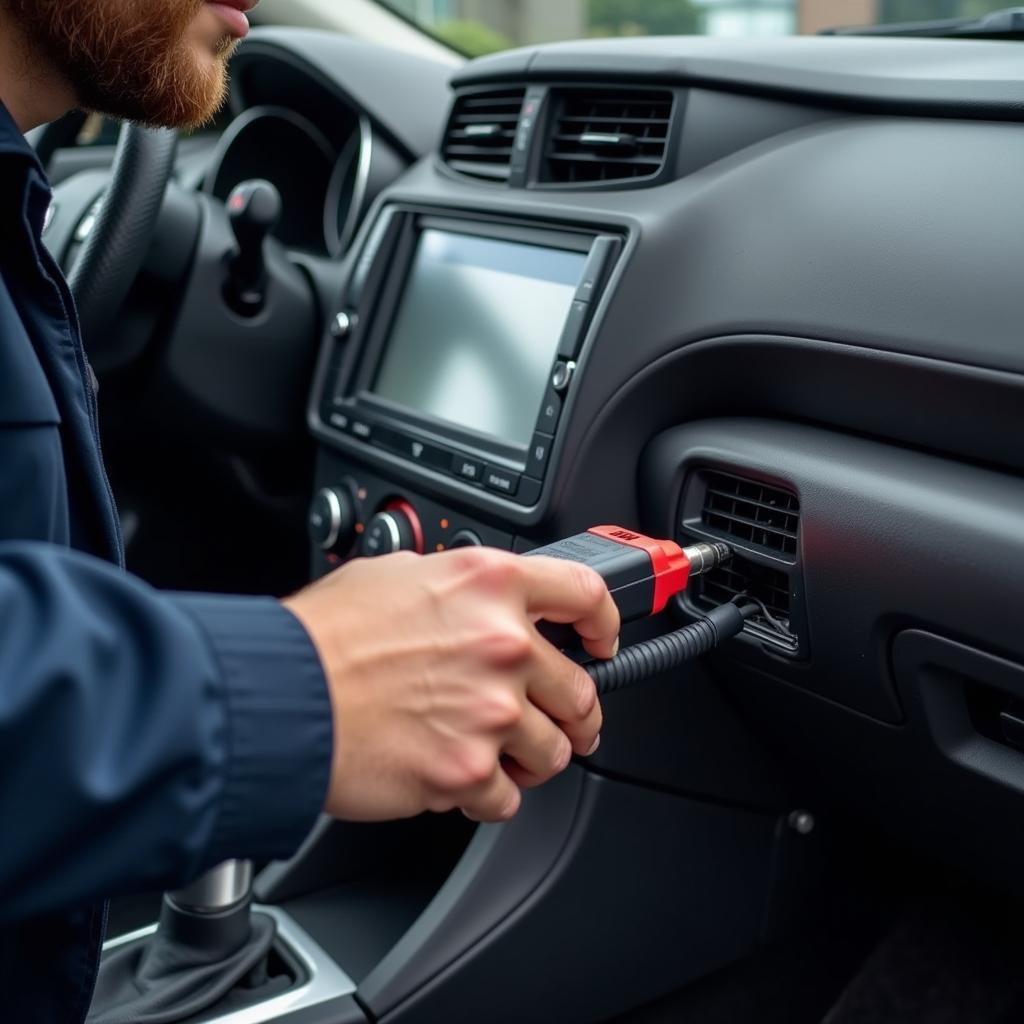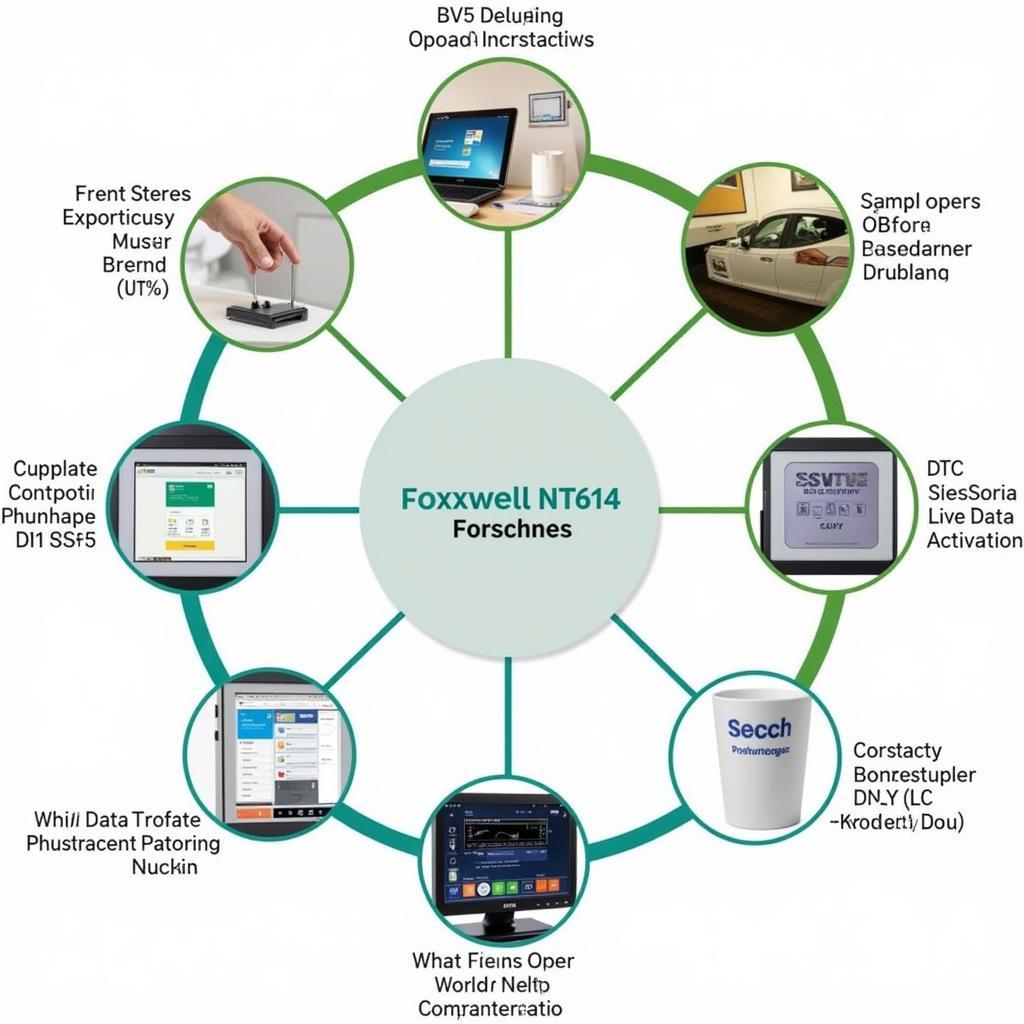The automotive world is no stranger to intrigue, and the “Len Foxwell Affair” phrase might pique the interest of many a car enthusiast. While it might sound like a headline ripped from a spy thriller, understanding the nuances of automotive diagnostics often feels like unraveling a complex mystery. Just like a seasoned detective, skilled technicians rely on their experience, intuition, and specialized tools to diagnose and repair the automotive puzzles presented to them.
This comprehensive guide delves into the world of automotive diagnostics, equipping car owners, repair shop proprietors, and technicians alike with the knowledge to tackle automotive issues head-on.
The Tell-Tale Signs: Recognizing When Your Car Needs Diagnostic Attention
Imagine this: you’re driving down the road, and suddenly, your car sputters, the check engine light blinks ominously, and you’re left stranded on the side of the road. This scenario, while undesirable, highlights the importance of recognizing the early warning signs of car trouble.
Ignoring these signs is akin to dismissing a persistent cough – it might seem insignificant initially, but it could be a symptom of a much larger issue.
Here are a few red flags that scream for a diagnostic checkup:
- Illuminated warning lights: This is your car’s way of communicating a problem. Whether it’s the check engine light, ABS warning, or airbag indicator, take these warnings seriously.
- Unusual noises: A symphony of clunks, groans, hisses, or whines emanating from your vehicle is a surefire sign that something is amiss.
- Performance issues: Sluggish acceleration, decreased fuel efficiency, rough idling, or difficulty starting are all indicators of underlying mechanical or electrical issues.
- Fluid leaks: Unexplained puddles of fluid beneath your car are never a good sign. Depending on the color and consistency, leaks can point to problems with your engine oil, coolant, transmission fluid, or brake fluid.
The Diagnostic Arsenal: Tools of the Trade
Just as a detective relies on forensic tools, automotive technicians employ a range of diagnostic equipment to pinpoint the root cause of your car’s woes. These tools act as their eyes and ears, providing invaluable insights into the inner workings of your vehicle.
- OBD-II Scanners: These handheld devices plug into your car’s OBD-II port, acting as a direct line of communication with your car’s computer system. They retrieve Diagnostic Trouble Codes (DTCs) stored in the vehicle’s memory, providing clues about potential issues.
- Multimeters: This versatile tool measures voltage, current, and resistance, allowing technicians to test various electrical components and circuits.
- Oscilloscope: This sophisticated instrument provides a visual representation of electrical signals, enabling technicians to diagnose complex sensor and circuit problems.
- Pressure Gauges: These gauges are essential for checking fluid pressures in various systems, such as the fuel system, cooling system, and braking system.
Decoding the Enigma: Understanding Diagnostic Trouble Codes (DTCs)
Think of DTCs as cryptic messages from your car’s computer, each code representing a specific fault or malfunction within a particular system. While DTCs provide a starting point for diagnosis, they shouldn’t be interpreted as a definitive diagnosis.
For instance, a DTC related to a misfire could be caused by a faulty spark plug, a clogged fuel injector, a vacuum leak, or even a problem with the ignition system.
It’s crucial to consult a qualified technician who can properly interpret these codes in conjunction with a thorough visual inspection and hands-on testing.
Beyond the Codes: The Importance of Experience and Expertise
While advanced diagnostic tools are indispensable, they’re only as effective as the technician wielding them. Just as a skilled detective relies on intuition and experience to connect the dots, a seasoned automotive technician brings a wealth of knowledge and practical know-how to the table.
 Automotive Technician Using Diagnostic Scanner
Automotive Technician Using Diagnostic Scanner
They understand that sometimes the most obvious solution isn’t always the right one, and they’re adept at thinking outside the box to diagnose and resolve even the most perplexing automotive mysteries.
“In my experience,” shares John Smith, a veteran automotive diagnostician with over 20 years of experience, “the key to accurate diagnosis lies in a combination of technical expertise, a deep understanding of vehicle systems, and the ability to listen to the customer’s description of the problem.”
Don’t Let Car Troubles Drive You Crazy!
Facing car trouble can be stressful, but remember that you’re not alone. Whether you’re experiencing engine woes, electrical gremlins, or any other automotive ailment, seeking the help of a knowledgeable and experienced technician is crucial.
Armed with the right tools, expertise, and a dedication to providing top-notch service, they’ll have your car back on the road in no time.
Need help navigating the intricate world of automotive diagnostics? Contact the experts at ScanToolUS at +1 (641) 206-8880 or visit our office located at 1615 S Laramie Ave, Cicero, IL 60804, USA. Let us be your trusted partner in keeping your vehicle running smoothly.


